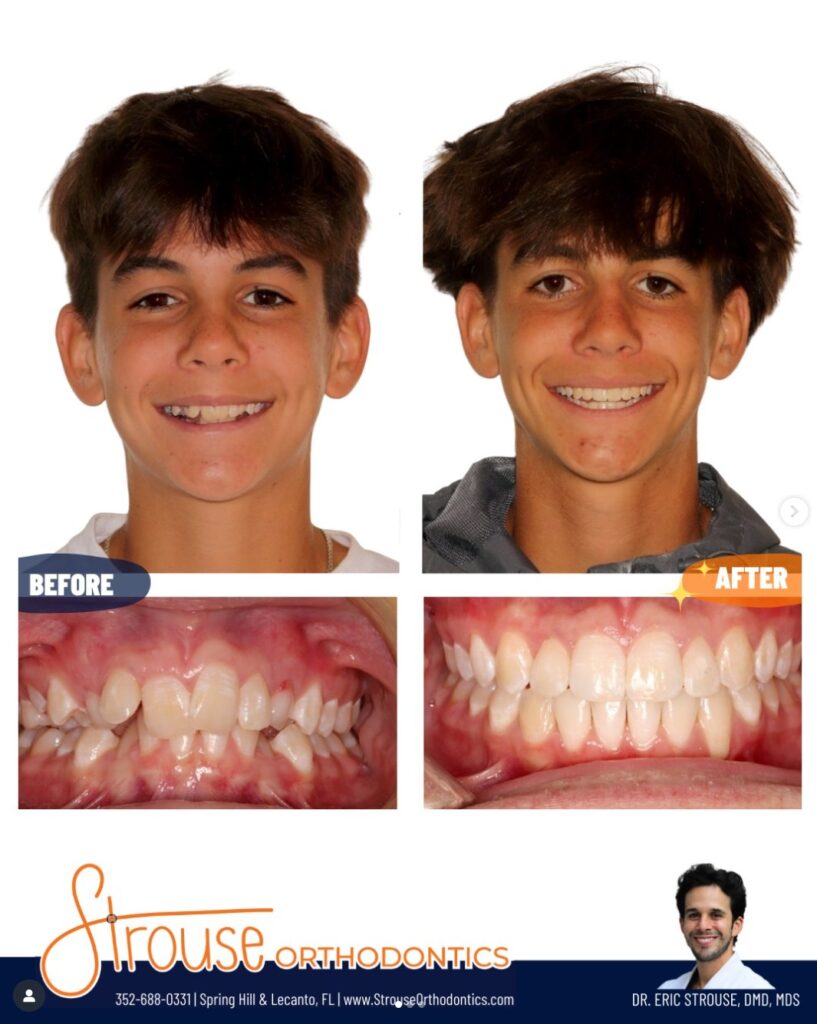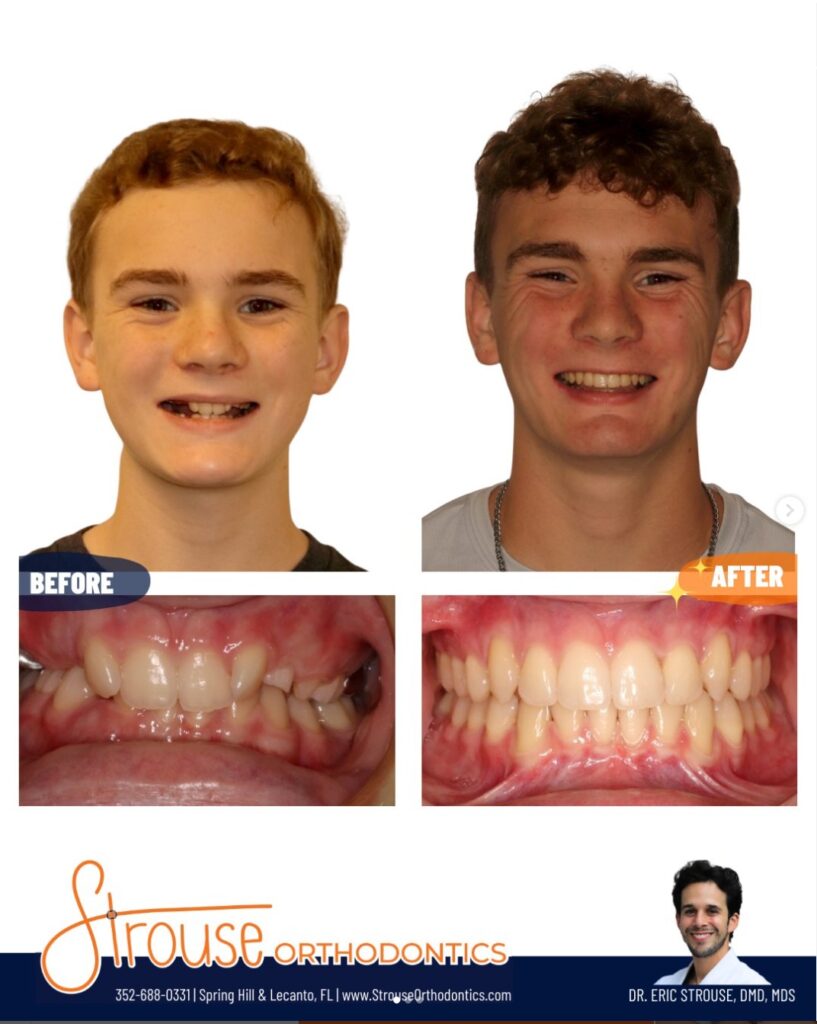Many people believe that dentists are the ones who “do Invisalign” and orthodontists are the ones who “do braces.” This is a common misconception, and is not correct. Invisalign and braces are simply tools used by the doctor. What truly matters is the provider behind the treatment plan. Orthodontic specialists are the doctors with the advanced training to use those tools correctly, whether it’s braces, clear aligners, or other appliances.
Dr. Eric Strouse at Strouse Orthodontics are the leading experts in clear aligner treatment and orthodontic treatment in Citrus and Hernando County FL.
Dentists vs. Orthodontic Specialists: What’s the Difference?
All orthodontists begin as dentists, but only a small percentage go on to complete two to three additional years of full-time residency training focused exclusively on moving teeth, correcting bites, and guiding jaw development.
Dentists are highly skilled at oral health care: cleanings, fillings, crowns, and overall maintenance.
Orthodontic specialists focus on diagnosis, biomechanics, and the precise science of how teeth and jaws move.
This distinction is important because orthodontics is not just about making teeth look straight, it’s about achieving a functional, healthy bite, fitting a smile to the individual patients face and providing the best results. Many dentists offering Invisalign are not only unfamiliar with advanced biomechanics, but they often lack fluency in the basic diagnostic terms orthodontists use every day, such as crossbite, overjet, or skeletal discrepancy. Commonly, dentists do not even take proper orthodontic records(a full set of photographs, panoramic x-ray and cephalometric x-ray). Many dentists will not even know what a cephalometric x-ray is! Without this foundation, treatment planning can become superficial, missing underlying problems and not having a full picture to plan a patients case.
The Marketing Tricks: “Certified in Invisalign” or “Invisalign Specialist”
Dentists often promote themselves as “certified in Invisalign” or even call themselves “Invisalign specialists.” These terms can be misleading:
Certified in Invisalign simply means they completed a short training course (sometimes only a weekend) to allow them to offer the product. It is not equivalent to years of specialty education. They are told, you will be able to go back to your office on Monday and begin generating profits treating all cases.
Invisalign specialist is not a recognized dental specialty. The only true specialty is a Specialist in Orthodontics and Dentofacial Orthopedics. To have this distinction, one needs to complete an orthodontic residency recognized by the Commission on Dental Accreditation.
These phrases are often used in marketing to create the impression that a dentist has the same expertise as an orthodontist. The truth is, orthodontic specialists are uniquely trained to design safe, effective, and comprehensive treatment plans. Many offices, the dentist will tell the patient they need an orthodontic consultation and tah-dah, the dentist is the orthodontist too!

Why Dentists Offer Invisalign
Many general dentists are encouraged by dental consultants to keep orthodontic services in-house. Consultants highlight the “lifetime value of a patient” the total revenue a practice generates over time, and warn dentists about the “lost revenue” when they refer patients out to specialists. They will be told phrases such as "even 2 cases a month that you refer out are costing you over 100,000 in revenue!"
As a result, some dentists hold onto orthodontic cases, even when those cases are more complex than they are trained to handle.
The Risks of Seeing a Dentist for Invisalign
When orthodontic treatment is supervised by someone without specialty training, the risks include:
Oversimplified treatment planning – Bite issues and skeletal problems may be missed.
Incomplete or unstable results – Teeth may appear straight but relapse quickly.
Delayed specialist care – Patients may spend months or years with little progress before being referred out.
Misleading information – Patients are told they “aren’t candidates” for Invisalign, when in reality, under specialist supervision, almost any case can be treated.
Waiting for baby teeth to fall out do do Invisalign - Often dentists tell parents they are just waiting on a childs baby teeth to fall out to do Invisalign when in reality there are multiple impacted teeth that will later require a surgery to correct.
Why Orthodontic Specialists Can Do More With Invisalign
Clear aligners are just one tool, success depends on the expertise of the provider.
An orthodontic specialist like Dr. Eric Strouse, who lectures to orthodontic residents on clear aligner therapy, has the training and experience to use Invisalign effectively for even the most complex cases. Specialists understand how to sequence tooth movements, manage jaw discrepancies, and build stability into treatment plans. Under the guidance of an Orthodontic Specialist even the most complex cases can be treated with clear aligners.

The Bottom Line for Patients
Dentists play a vital role in maintaining oral health. But when it comes to moving teeth and correcting bites, orthodontic care belongs in the hands of a specialist.
Don’t be misled by marketing phrases like “Invisalign certified” or “Invisalign specialist.” Orthodontists are the only providers with the advanced training to manage both simple and complex orthodontic needs safely and effectively.
For results that last a lifetime, trust your smile to an orthodontic specialist.
